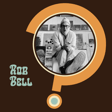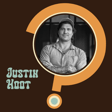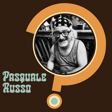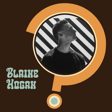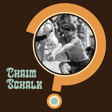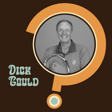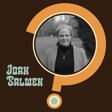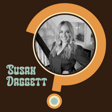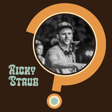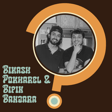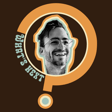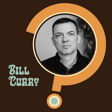Become a Creator today!Start creating today - Share your story with the world!
Start for free
00:00:00
00:00:01

Episode 21 - Jeremiah Robison
Jeremiah Robison is a technologist building the future of human augmentation. He is the founder and CEO of CIONIC, a company building bionic clothing for mobility impairment. We talk about moving as a child, how mentors have helped him believe in himself, and how his daughter inspired him to do his life's work. Jeremiah shares about his goals for the future of human augmentation, and what a meaningful legacy means for him.
Transcript
Podcast Updates and Marketing Strategy
00:00:11
Speaker
Hello and welcome back to What's Next. My name is Joel and this is my podcast. Before we get into the guest, a bit of podcast business. I'm still trying to figure this out. I'm trying things like experimenting with making short videos to share on social media to get the word out about the podcast, which side note, if you see those, I'd really love to hear from you to know if they're helpful, interesting, exciting, or unnecessary. But it's been a few weeks since my last episode.
00:00:40
Speaker
I am coming to the realization that doing an episode a week is more than I can sustain, given everything else that I'm doing and committed to. I want to do this in a way that I can actually manage and be consistent with, so my plan now is to release an episode every other Monday.
00:00:56
Speaker
I think it'll be much more feasible to find the time to record, edit, finish, and release them with some more consistency.
Exciting Guest Announcements
00:01:05
Speaker
And really the consistency is mostly just for me having the expectation and the deadline to do it really helps me stay motivated and keeps me working on the podcast.
00:01:17
Speaker
And I have some guests lined up that I'm really excited to talk with and share those episodes. So that is a plan moving forward one episode every other Monday.
Introduction to Jeremiah Robinson
00:01:29
Speaker
Okay, today on the podcast is my conversation with Jeremiah Robinson. Jeremiah is a tech entrepreneur. He has started and sold multiple companies. He's worked for companies you've heard of. He's developed technologies that many, if not all of you have used in your life. Things like browsers on cell phones, smartwatches, stuff like that. He's now running a company he founded called Psyonic, where he and his team are developing bionic clothing for mobility impairment.
00:01:57
Speaker
I first met Jeremiah last year when working on a video project about his company and I was able to have many conversations with him, spend time at his office, at his home, meet his family and his daughter who is a really cool person and the inspiration for psionic.
Jeremiah's Career Shift and Psionic's Mission
00:02:14
Speaker
We'll get into that story a bit in the conversation. But he's a really inspiring person who made a huge pivot in his life to do something life-changing for others.
00:02:23
Speaker
So I was really happy to talk to him for the podcast and I'm excited to share it with you now. So please enjoy my conversation with Jeremiah Robinson. Hey Jeremiah. Hey Joel, how are you? Good, how are you doing? Doing well. Hey, I recognize that room.
00:02:50
Speaker
Don't have all of the equipment in here today. Yeah, all the sound dampening. I like your background. I like the Star Wars blankie. Yeah, thank you. My kids, I think, which one is this? This is my oldest son's blanket that he made as like a winter project. Just trying to be professional over here. Remind me how old your kids are.
00:03:13
Speaker
Uh, six and nine, almost 10. Just, uh, next month will be 10. Almost full of full, full humans now. Yes. Yes. How's Sophia doing? Uh, she's doing great. She's just finished her applications for high school. So. Oh my gosh.
00:03:30
Speaker
waiting anxiously. We're all waiting anxiously, I should say, to hear the results of where she'll end up.
Family Life and School Applications
00:03:36
Speaker
Yeah. Is the San Francisco high school system pretty stressful? Like when kids are at that point, like in Chicago, it's like college application level. Kids are freaking out. Parents are freaking out. It's very stressful because it has such an impact on your future. Yeah. I mean, it's definitely, I think any of the big cities you're going to get
00:03:57
Speaker
a lot of that high alpha stress from families about where their kids are going to school. Yeah, it's definitely, you know, so I went to high school here in the Bay Area and don't remember any of that stress. So I think some things have changed. And sure, scholastics have gotten more competitive. Yeah. And higher emphasis. Yeah. Then when I was a kid in the same area, there's a lot more, you know, even though it doesn't seem like
00:04:25
Speaker
It seems like Silicon Valley has always been super successful. I think the delta in money has really increased here. Yeah. Well, and it seems like college admission too is so much, everything's about that. So it's like all the decisions that impact your college admission become heightened as
Podcast vs Video Storytelling
00:04:44
Speaker
well. Totally.
00:04:46
Speaker
I want to say thanks for coming on the podcast. I'm really excited to have you on to talk with you. Working on the projects with you for the tech last year and just seeing a bit of your life, seeing how you orient yourself around
00:05:05
Speaker
the work that you're doing and, you know, your family and the impact you want to make. And then also just like seeing the day to day of how you're doing it. It was really inspiring to me. And I was hoping to talk to you to kind of learn more about you, even though we did do some of that in the process of making the videos. The podcast format is so much more curiosity based, you know, than we're not trying to make a specific polished minute and a half deliverable. So.
Psionic's Mission and Personal Motivation
00:05:34
Speaker
Yeah, so you are creating hardware and wearables for the human body. The first bionic clothing for mobility that really helps people with mobility impairment regain some of their mobility. I wonder if you could just spend high level 30 seconds of what it is that you do at Psionic and what the work is that you're doing now before we get into your story.
00:05:58
Speaker
Yeah, sure. Absolutely. Our company builds Bionic clothing to help people walk. The big vision is really how can we bring the best of technology to bear on the most challenging problems of disability. It's an unmet need
00:06:14
Speaker
that has really, I would say that technology is really left behind this group of individuals, especially with physical disabilities. So you've seen a lot of innovation happen on learning tools, and we wanted to see what could be done from a technology standpoint to bring better
00:06:34
Speaker
devices better solutions for people with physical disabilities. And I was really born out of my own personal experience as a father, having a daughter with cerebral palsy, which is fairly common. It is the most common childhood physical disability affects three in 1000 births. So it's, you know, it's more pervasive than you kind of think it would be. And she just, you know, there are some
00:07:02
Speaker
medical procedures that help, but there's really no solutions to help with her mobility. So that was really the impetus for starting the company.
Jeremiah's Upbringing and Early Interests
00:07:11
Speaker
Okay. And you have a background that sort of naturally progresses into this type of technology. So I'm curious if we could maybe just kind of go back to, like you already said, you grew up in San Francisco? Yeah, I was actually born in Salt Lake City, Utah. Okay. My father worked on early supercomputers
00:07:30
Speaker
Salt Lake City was kind of like a hub for computing. Yeah, University of Utah has a great computer science program has for a long time. And a lot of the research focus there in the late 70s, early 80s was around supercomputing. And there was a
00:07:47
Speaker
a big company there called Evans and Sutherland which was building the first if you've seen war games and remember the whopper it was you know a size computer that i used to go in to visit my dad and sit at that computer and
00:08:06
Speaker
Well, it was foundational time and they were building flight simulators for the US government. And I remember saying these little blocks cut out for the pictures of the graphics system at the time. And it looks, you know, so much has progressed since then.
00:08:21
Speaker
But those are really early foundational days. And then as Silicon Valley started to grow, my family moved out here to the Bay Area. And then, you know, my mother started her clinical practice and my mother was a physical therapist by training my dad, a computer scientist by training. She started her own practice here in the Bay Area as well. So I sort of grew up steeped in both the
00:08:45
Speaker
um, the needs of rehab and the opportunities of, um, uh, technology to, to impact the world. Yeah. And how, how old were you when you moved to the Bay area then? I was eight. Okay. Do you remember that pretty well?
00:09:01
Speaker
Oh yeah, I didn't want to come at all. Really? I love skiing. Every chance I'd get, I would go to the hill. And so moving to the Bay Area where there was no snow and no skiing, I was like, this is awful. I don't want to move. You have friends. It was a big change for us. Obviously fantastic for my dad's career, but not something that I particularly wanted to do.
00:09:29
Speaker
Yeah, sure. Were you an only child? I was, yeah. Okay. You would go through that experience a little bit on your own too. That's tough. Yeah, for sure. My wife is one of six and so they moved around quite a lot. She's like, oh yeah, it was no big deal. We moved around. I always had a group of my entire family. They're with me at any new school. I was like,
00:09:53
Speaker
Yeah, it's different when you're an only child. There's no siblings to help support you. I always had to make new friends, adjust to new environments. And each of the moves was fairly significant from that standpoint of trying to just adjust. So you moved more times. Did you move within the Bay Area once you got here?
00:10:16
Speaker
Yeah, so when we first started, we lived out in Half Moon Bay. Okay. And I went to, you know,
00:10:25
Speaker
a pretty rural public elementary school. And then when we moved actually to Redwood City, so moved on to the peninsula, ended up going to sort of a more academically rigorous school to which I was not prepared. And it was quite the adjustment. So were you more of like an athletic sports kid or what were your interests? Yeah.
00:10:51
Speaker
You know, I wouldn't have said so when I entered high school, like I didn't, I swam. I didn't think that I was going, you know, I wanted to participate in athletics in school, but I wouldn't have considered myself a jock. I was definitely more academic at that point in time.
00:11:09
Speaker
It ended up that I just really, I started playing water polo my freshman year in high school, really ended up falling in love with the sport and did quite well. And that helped me to ultimately get into Stanford and I played water polo there, registered my freshman year and then played four years. Oh, wow. That's great. Yeah. The combination, you know, I think of
00:11:34
Speaker
academics and athletics. They're very complimentary in a way, right? You get all of the teamwork from especially a team based sport, sort of living, breathing, working with the same group of people towards common goals. It fills out one part of, you know, sort of my background and my beliefs, and then the academic group, which is often more solitary.
00:12:00
Speaker
honestly, in college, right? Yeah, it's not like many people are doing a ton of group projects. But having those two elements, I think I needed one to be what to do well than the other. So yeah, yeah, I really enjoyed being a scholar athlete in college.
College Experience and Entrepreneurial Beginnings
00:12:17
Speaker
As a kid then, you grew up with your dad doing these really cool projects and then seeing your mom doing what she was doing with her health work and the spine clinic, did you feel that kind of pulling you as you were thinking about what you were going to decide in terms of what you were going to study in college or what you wanted your life to maybe be about one day?
00:12:42
Speaker
Yeah, I feel really fortunate that my parents didn't apply a lot of pressure to one career or the other. You know, they did want me to
00:12:52
Speaker
work hard and do well academically, but there wasn't any pressure to follow in either one of their footsteps. When I got to college, I started taking CS classes pretty much straight away. It wasn't too long before I knew that was what I wanted to do with my career. Is that because you loved building hardware, building software? What was it that you liked about it?
00:13:19
Speaker
You know, I think initially there was just some real awe in what seemed possible. Like those early days of software, the internet was just coming into being, this was 1994 when I went into college.
00:13:35
Speaker
Um, and so, you know, a web browser was mosaic and there were like 12 pages on the internet. You could like not find anything and look at how far it's come. But it was really clear at the time that software, especially would play such a big role in the transformation of so many industries. And I wanted to be a part of that. Um, and it turned out I like.
00:13:58
Speaker
I was pretty good at it. That also helps. Find something you like that you're also excel at. Yeah. In that young adult phase as you're making some of these decisions about what you want to do, did you feel pretty self-assured? You had what it took to play the role you thought you could play? Yes and no.
00:14:20
Speaker
I find that when I reflect back on this journey of discovery, my first job out of college, I felt 100% equipped for being an individual contributor in a very challenging software project. And my first job was building, out of college was building
00:14:41
Speaker
a web browser for cell phones. Okay. When you know, very early days before iPhone before Android. And it was fantastic. It just, you know, very, again, solo focused. And I remember telling my dad is like, I don't know why you ever want to manage anybody like then, like, it's so fun just to build till I never thought I was gonna
00:15:02
Speaker
even considered being an entrepreneur. I just love building and I had an opportunity to build something pretty amazing. It shipped over a billion browsers in phones across the world. It was an amazing... I had internships before that. I worked at Apple. I worked on their first handheld computer, which was the Newton. But this was my first job out of college. It shipped a billion things around the world. How crazy is that? And so it really
00:15:30
Speaker
But even in that job is like, well, I want to do it, you know, like I want to get this thing accomplished. And then, you know, my boss at times, why don't you run a little team? I said, okay, fine. And so just sort of like, as the ambition grew, the idea of like getting their required building a team and managing a team and making sure that you were creating a successful environment to take on bigger and bigger challenges.
00:15:56
Speaker
So did you feel that where you felt the more personal challenge was in the, like the people management, the team building side of things rather than your own, your own skill to create the product? Um, you know, I think it came pretty naturally to me and there are different types of leadership styles. Yeah. And I certainly gravitate more towards the lead by example type of style, which I do think suits entrepreneurship well.
00:16:24
Speaker
And as the scale of the businesses that I operated within got to a certain point where
00:16:33
Speaker
Basically, my time was fully management and very little on execution. That would be when I switched into a new startup and started the process all over again. Okay. So you enjoyed that part of the ride rather than when things become solidified and corporate and structured like that. You enjoyed the part of the building
Learning from Mistakes in Entrepreneurship
00:16:57
Speaker
something.
00:16:57
Speaker
Yeah, you know, I think there is something very compelling about going from zero to one. It's not for everybody. Like there are so many uncertainties. And yeah, most of the time you end up making a lot of mistakes in that journey that you have to learn from mistakes. And it's oftentimes and I've experienced this a number of times in my career that
00:17:22
Speaker
The thing that we built was this beautiful thing that cost a lot to bring into the world. And then other people were like, Oh, okay, that's what needs to be in the world. And, you know, like Apple will come in and they'll do their version of it. Right. And it'll, it'll be great. And so, um, it takes a real love of the journey and not the destination to, um, go through the turmoil, I would say the turmoil of starting a company or building something from concept.
00:17:48
Speaker
Yeah, yeah. From my own personal experience, I have a really bad history with how I feel about making mistakes. If the mistake existed, then like, oh, I guess I don't belong here or like I'm disqualified somehow. So I'm curious how you got to the point of seeing the mistake as inevitable and as an important part of the process and as not a
00:18:17
Speaker
indicator that you shouldn't be doing what you're doing, but but just rather like a way to like adjust your focus and or am I getting that entirely wrong? No, I mean, I think fear of failure can prevent us from trying certain things. Yeah. And yet I think the fear of failure is highly motivating.
00:18:40
Speaker
Right. And so, yeah, they say mistakes are beautiful. Right. I always tell the time my daughter about that. Yeah. Right. You know, I would say like, if it, if it was easy, it would exist. Right. And so you have, I strongly believe that to bring this thing into the world, you know, mistakes will have to be made because it's a process of discovery. And so it's.
00:19:05
Speaker
Do I want to fail? No. Do I have a healthy fear of failure? Yes. When I think about what does success look like, it's how we respond to those failures, how I've responded to failures in my life or challenges or mistakes that I think has been the difference between stopping early and getting some really cool things into the world.
00:19:34
Speaker
Yeah. So you learned that through experience, do you think? Or was that something you learned from seeing your parents do what they do? It was definitely through experience. I've been really fortunate in a lot of ways that
00:19:54
Speaker
while like early foundational, right? So talk about that experience of being that first job out of college and building something and having mentors that really supported me. So like going in a little bit deeper of that first experience. So I joined a company at the time it was called Unwired Planet and they were building some of the first
00:20:18
Speaker
infrastructure for data on cell phones. And they were, you know, we were basically first thing with sports scores and stock tickers on like a single line display. Okay. And, you know, just in my sort of night times and weekends, I started building an HTML browser. So it's a fascination with, you know, how do you take the real web and bring it into the cell phone? Yeah, it wasn't part of my job. It wasn't my job description, right?
00:20:43
Speaker
But I was doing it out of my own motivation and my own interest. And I brought it to my boss and said, hey, look, I've been building this. I think it's like where we should be going as a company. I think this very specific watered down web just for phones, it's great for now. But where are we going to get to and how fast can we get there?
00:21:07
Speaker
And, you know, he could have easily said, like, that's dumb. Like, what are you doing? We have this whole other job to do and say, all right, I want you to stop the work you're doing on your day job and like do this full time. And that was such an amazing response for me, because what it did was it said, encourage that type of creativity. And I think that we don't
00:21:30
Speaker
generally do that within a corporate environment of being like, yeah, like your idea, like you're one year out of college and you're coming to me with this idea. Usually you're like, that's dumb. Like do your real thing. Um, but I do think that's, there's some, there's a reason that a lot of entrepreneurs are either dropping out of college or they're just newly out of college because that creative spark. And so how do you, how do we encourage that as an industry?
00:21:58
Speaker
you know, at all levels, whether that's a large corporation, or, you know, you know, in school itself, and say like, Oh, yeah, let's, it may not work out, but let's pursue it and see how far we can take it. And so that really set me on the path towards entrepreneurship. Yeah, but early in my career.
00:22:17
Speaker
Now that you're on the other side of that, you've managed a lot of teams, managed a lot of people. Have you experienced that from the other side where people have come to you spending their time doing things that isn't necessarily what you're hired them to do or whatever and they've brought you something that has surprised you or that you've been able to encourage?
00:22:37
Speaker
Absolutely. I try to create frameworks that encourage that.
Innovative Hiring and Company Culture
00:22:45
Speaker
I'll give you an example. Try to encourage this at all levels. This summer we had our first intern class for the company and we did a very different hiring process than at least I ever experienced. I said, come to us with the idea of the thing that you want to build in human augmentation and we're going to help you build it.
00:23:05
Speaker
And the reason we want to do this, they can make sense for us from a company as trying to build out a platform for human augmentation that we only have a very fixed view of what that means based on our experience and what we've built. So you need creative ideas, you need to bring in new folks. And then the process then of actually going and trying to realize
00:23:29
Speaker
one of those concepts is that you figure out where in the, you know, infrastructure you need to improve to make that process faster, right? So, you know, the big thesis of what I think has happened at certain inflection points in time is that it's not that the
00:23:46
Speaker
Ideas all came about at once out of the ether. It was that you had a platform, right? Think about what the web enabled. Think about what moving servers to the cloud enabled. Think about what the iPhone enabled in terms of different classes of ideas to exist. And so creating that infrastructure and then finding opportunities to seed that with creative ideas.
00:24:10
Speaker
whether that is folks from our own company or through partnerships. That's sort of trying to manufacture in some ways that spark. Yeah. Do you find yourself experiencing any – if someone who I'm managing or whatever came to me with something that was like
00:24:31
Speaker
better than what I was doing or maybe like more interesting or more exciting or was solving a problem I had been trying to solve or whatever. Do you experience any kind of like...
00:24:41
Speaker
jealousy or like frustration that like it wasn't you or even like shame around the fact that it wasn't you or like does that experience ever happen because that's that's how I that's oftentimes sad to say my first reaction is like you know does my ego ever get bruised um yeah I would say that yes primarily when it's a competitor
00:25:05
Speaker
like when you look at someone in the market and you have this idea or I have an idea and it's like I want to bring this to fruition and someone else beats us to it. I don't recall
00:25:23
Speaker
And it's not to say that it didn't happen, but I don't recall ever having that sort of frustration or jealousy when it came from our own team. Okay. And then again, like, but it's been a long time since like sometimes in teams, I haven't worked in a corporate culture. Like there may be constructs where you have two teams trying to build the same thing and that that's competitive, right? So usually in small companies, it's so tiny. You're like, anytime someone comes up with something brilliant, they're like, yes, let's go.
00:25:51
Speaker
So that's one of the really nice things about starts. There are plenty of things that are really hard, right? You're usually taking much lower salary and compensation than you could have if you were to work for one of the big five.
Startup Challenges and Supportive Culture
00:26:06
Speaker
There's more stress, especially as you run a company, you never really have more than two years of runway when you're
00:26:14
Speaker
fundraising you like that's the rule of thumb you're like I'm raising for the next two years and here are the things and you never like exceed your expectations of what's possible because you're always setting like you know you go out and like it has to be like we're gonna go change the world and we're gonna do it in five days right and so if you're like it's like always feels like you're trying to catch up to the expectations that you
00:26:36
Speaker
put out into the world. So those are really stressful and having a team that is like fully invested and that you believe in and that you are celebrating their successes as your own and I mean that's absolutely key.
00:26:50
Speaker
Yeah. So where did you go from
Learning from Max Levchin and Career Growth
00:26:52
Speaker
there? You worked for this company developing a web browser, and that was very successful. Where did you go after that? Yeah, I went even earlier stage. So I got introduced through a friend to Max Levchin of PayPal fame. He had just sold PayPal to eBay. He had started the incubator to take his inspiration and teach it out to other budding entrepreneurs.
00:27:20
Speaker
I came on to one of the projects that he was working on, which was called Slide. And at the time, it was basically image-based shopping in a little ticker on your PC. So think about like, even that seems like kind of wild right now. It was still pre-iPhone. And so, you know, he had decided that he was going to lead that company
00:27:44
Speaker
as the CEO and he was looking for someone to basically come in and be CTO. And what a great opportunity for me to learn from one of the best CTOs that is in modern history and also learn how to be an entrepreneur. And so I joined there and you know, it was a handful of people, four or five people at the time. What year was that?
00:28:07
Speaker
2005, I wanna say. And you were like early 30s, late 20s? Let's see. Yeah, late 20s. Okay. So 2005 started there. So a big opportunity, like a life-changing opportunity, really? Yes. Well, you know, it was hard to say, right? Like it's a startup, right? I thought that opportunity to learn was huge. Yeah.
00:28:31
Speaker
And you know if you've ever had a chance to spend time with Max he is both incredibly driven really smart and you know really understands how markets work and so you know it was such a unique opportunity for me to try you know to.
00:28:53
Speaker
Try to live up to that right and it was also really a challenging right this is an amazing cto and i was trying to be a cto for him right and so i think the bar the bar of expectation was incredibly high and i never knew what i was capable of until.
00:29:12
Speaker
I worked with him and saw what the standard of excellence looked like and had him really push me to hit that mark. Yes, it absolutely was so key in my growth as an entrepreneur. I can't think of enough for what he's done for me.
00:29:33
Speaker
And how did that process change how you felt about yourself and your ability to do the work? Was it the kind of thing where you had sleepless nights stressing out about it? Or did you feel like you were able to find your rhythm and run with it? Definitely sleepless nights, but mostly because we worked. And I think that was the biggest thing.
00:29:57
Speaker
is also a muscle. The more you push yourself, the more you train that muscle, the more capacity you have into the capacity, one, to hit really insane deadlines on short amounts of sleep and still have really excellent output. The ability to hold a pretty complex idea in your head and then
00:30:26
Speaker
to be able to lead different people into filling out the components, even while they're still a little bit vague, right? And the ability to shift direction pretty fluidly to go capture new opportunities. These were all things that in my previous work experience, I built something really cool, but it was pretty well defined as to what
00:30:49
Speaker
the limits of that box were. And in the case with Slide, we started out building an image ticker on a desktop, which evolved into a slideshow in MySpace, which evolved into social games on Facebook. So that idea of a
00:31:12
Speaker
pivot. I don't necessarily want to do it that way again, but the fact that you could and that you could lead a team through uncertainty is a really specific skill set. Yeah. Yeah. So one of the things I'm really curious about is how people sort of work through moments of like significant doubt or feeling like they can't do it or they don't have what it takes. Did you experience that in those? Yeah, absolutely. And then how do you respond to that? Yeah.
Handling Stress and Personal Challenges
00:31:43
Speaker
Gosh, by way of example, there are many different moments in my life of doubt and I would say different responses to those doubts, both professionally and personally.
00:31:59
Speaker
I'll start with the most profound, which was a personal one. When my daughter was born, she was born at 28 weeks, zero days. My wife went into labor a week before that in LA. I got the call. I
00:32:18
Speaker
through everything we had in the car, I drove down, expecting to stay there for a month, ended up driving back, you know, on the five were the closest thing to an emergency room was a vet hospital, ended up landing and like, then
00:32:36
Speaker
She went back, and then they went right into the hospital. And that time, those two months, I think are a great encapsulation of how I react to high levels of stress. And the high level of stress, for me, I get very focused on what can be achieved. I try not to focus on the worst outcome.
00:33:00
Speaker
which the worst outcome was, wow, I newly married, I may be without my daughter and without my wife. I didn't even think about that until after it was over. That could have happened. But they knew there were tasks that needed to be done on, you know, really on every minute of the day, tasks that needed to be done, conversations that needed to be had.
00:33:23
Speaker
And by focusing on those and clicking them off one at a time, it always felt like you were making progress. Who knew what the end goal was going to be? So that was like a real, it's the highest moment of stress that I've ever had in my life. And my wife likes to say that I'm like, amazing in a crisis, but like,
00:33:43
Speaker
Not that responsible the rest of the time. Which is about right. And some people manufacture crises. And I may be guilty of that, where it's like, well, let me put this crisis out here, because I know how to operate if there is a crisis. And to go on the other side, where have I struggled? So actually, the end of slide was a really interesting one, where I was like, I don't really want to be working in games.
00:34:12
Speaker
which is sort of where we had pivoted to and like, I feel unsatisfied. And I feel bad because I want to have that level of sort of disconnection between what I find personally satisfying and what the responsibility is to guide the company. And so, you know, having that conversation with Max and being like, you know, I just like,
00:34:36
Speaker
I love you. I love, you know, all that you've done for me. I want to help this company be successful, but I'm like miserable. What should I do? And he's like, yeah, you should go do something else. I was like, Oh, okay. I'll go do that. Right. Like, and so what felt like a moment of deep personal questioning was really just like, no, that's an opportunity to go change. Right. And so I think there's a little bit of, I end up oftentimes being too deep in blinders on about
00:35:04
Speaker
what this specific thing means in the context of my life, putting so much of my own self value into the success and or failure of the company. And so that's where, you know, I wish I had a little bit more perspective. Yeah. So in that in that slide example, did you feel like you were you'd be letting Max down or like letting your team down and that took up too much sort of weight in your decision making?
00:35:34
Speaker
Yeah, it was all the above. Let Max down, let our investors down, let the team down. And only just because I didn't like the work that we were doing, that didn't feel like I was being responsible. I see. And did you feel like you knew what you wanted to do next? Or how long did that transition take?
00:35:51
Speaker
Yeah, you know, I moved pretty quickly from there into my next startup. And I was building, I was taking some of the lessons that we learned. And I think that's also another thing is like, they're, regardless of how you get there, there's always lessons learned that can be applied. And so I actually ended up starting my next company while we were in the process of shopping slide to for sale.
Founding Psionic and Addressing Mobility Challenges
00:36:15
Speaker
Oh, and
00:36:17
Speaker
You know, that was take all of these really interesting mechanics, social, gaming mechanics, but apply them to the world of health. I wanted to get back to something that I care deeply about. And that was the foundation of my next company, which I ended up selling to actually a hardware company called Jabon and they were
00:36:38
Speaker
and it became the foundation of the first wrist-worn consumer health tracker. So it sort of like took this road all the way back to putting computers on people's bodies. So yeah, I wouldn't say that I exactly predicted the thing, but I definitely got back to something that I really was passionate about.
00:37:01
Speaker
Okay, how long did that process take from like you started to first sort of have those questions or those feelings like this isn't what I want to do as slide to you're doing you've made the decision to do the next thing.
00:37:15
Speaker
was pretty quick. You know, once I had, you know, it would probably, there were probably three months of time where I was just like, is this like, can I get excited about this existing space? Do I, you know, like, what would I want to do to then having that conversation with Max and then, you know, like doing the transition for the company and then starting the new thing that was probably another three months. So from the point in time where I was like, I don't know if I like this game stuff, this kind of kind of
00:37:45
Speaker
Not floating my boat to you know, starting a new company and having a few people in my living room Actually my wife's living room It was pretty quick. This is six months. Okay. Okay and and the So you're so you you transition into wearable Technology at that point and then you're you've kind of stayed in wearable technologies since then. Is that right? Yeah So I was there
00:38:13
Speaker
So after I sold, my company was at Java one for six years. And then, you know, it was really that realization of cash man. I know just enough hardware, software, and I've got a real big problem in my life. You know, something that weighed on me every day, and that was the
00:38:39
Speaker
growing challenges that I saw with my daughter's mobility. And I was like, geez, man, like, I really wished someone else had built something so that it already existed so that we could already take advantage of it. And it was just one day where I said, man, like,
00:38:56
Speaker
I have to go do something about this like it like i have all the skill i have all the motivation yeah i should go i should go work on this and so you know step down to transition there and i was a bit of a longer transition for that company cuz.
00:39:12
Speaker
for various reasons, but I sort of immediately started to work on ideas in the nights and weekends again. And it comes back to like, what can we do in our nights and weekends to explore what our future looks like while still maintaining
00:39:29
Speaker
excellence in the job that we're doing in the daytime and ended up pretty quickly coming to some conviction that it wasn't just some pipe dream that I wished there would be something to help my daughter's mobility but that I could actually make a difference
00:39:51
Speaker
there and you know that was that was also you know from actually from the point I stepped down from my role at Jawbone I was like September of 2017 I didn't raise money and for another year I was working on it by myself you know in the garage for almost a whole year before I raised my
00:40:13
Speaker
Oh, wow. On that idea. Okay. And part of that working on it was seeing if you have the skills to really make an impact in that space, but also seeing if there was a viable business that could be made.
00:40:27
Speaker
Yeah. I mean, one of the things that we experience a lot in the disability space with my daughter, and I've heard this from other people as well as, is it a business or is it a charity? Yeah. Is there a real economic opportunity or do you just want to do good for people in the world? And those are different things, right? My wife runs a nonprofit to help families like ours. She does amazing work. We,
00:40:54
Speaker
have delivered over 4000 Walker capes for pediatrics, you know, both here and in in Canada. But it is definitely a nonprofit, you know, and it's getting donors to donate money, getting people to donate their time so we can do good in the world. That business I have now is definitely a business I'm held to, you know, right profit margins and you know, unit economics and
00:41:21
Speaker
Making sure that there is a big enough market and turns out that when you look at physical disabilities in aggregate as a whole lot of people and we have strong conviction that we can build a single set of tools a single platform of technology that can like the iPhone enabled is mobility.
00:41:42
Speaker
like the web-enabled commerce, a new explosion of ideas and solutions for people with mobility and parents.
00:41:53
Speaker
Yeah, yeah. I'm curious if you would say that as listening to your story, I feel like I have a guess, but as you are making decisions for your life and deciding what you're going to do next at these various crossroads, do you feel like you're someone who's more led with your heart or with your head?
00:42:14
Speaker
Hmm, I would say equal parts. You know, I and I think about it specifically in this business, obviously, this is the most heartfelt work that I have done. And I definitely yeah, I get in passion, you know, about the work that I'm doing here and always have always
00:42:33
Speaker
If I'm not excited about the work, it's hard, but it is also deeply intellectual and trying to understand how the human body works and how to marry a machine to physiology. It's fascinating.
00:42:50
Speaker
I think that for me personally, I can't have one without the other, but they both play a huge part. I couldn't go invest all my time in something that I really felt deeply about, but wasn't intellectually excited about. I know that's a bit of a cop-out, but I definitely will say that they play equal parts.
00:43:13
Speaker
So when you're approaching a decision like a career change or something like that, are you looking to see is this something I can be passionate about and this is something that can intellectually stimulate me for the long term that you can see the arc of that? Is that a part of your decision making process?
00:43:32
Speaker
Absolutely. I mean, you know, I think certain people are wired to say, you know, what's the what's the time box of this opportunity and to go attack something that does have a definitive time box? Like, if we can intercept this market reality, then in three years, you'll have like sort of the optimal exit. Every single thing I've done, I thought I could do this for the rest of my career. And
00:43:59
Speaker
I love that. It's exciting to think that and then there's your can be wrong, right? They didn't point in time either, you know, because business itself didn't work or got tired and like lost the level of interest. But I certainly think of what I'm doing now is my life's work and want to continue to do it as long as I possibly can.
00:44:20
Speaker
And you've been doing it now for five years, is it? Six years? Yeah. So arguably I started in late 2017 working on it and raised our first money mid 2018. So gosh, it's 2024 now. I guess that's we're entering the seventh year of working on this.
00:44:41
Speaker
Yeah, yeah. What has the process for you been like setting out on this mission? Because it doesn't get much more personal in terms of a mission that you're
Psionic's Milestones and Impact
00:44:55
Speaker
doing. And to be able to make real true groundbreaking progress, I can only imagine feels quite rewarding and keeps you going, spurs you on.
00:45:08
Speaker
Uh, absolutely. We, it's fascinating to me to build something that takes so long, right? And so, you know, we started, I started in late 2017 and it was not until 2020.
00:45:28
Speaker
two, that we actually got it all the way through clearance, and we're using it, you know, with with patients, right. And so, and then, so that's a long time, right? So you have these little moments along the way. And I think that's especially challenging in a startup environment where, you know, I said earlier, you have this sort of, you know, raise money for two years and two years and
00:45:51
Speaker
two years. So it's like, what can I achieve knowing like I knew, right. And then when I went out and raised my son, like buckle up, you know, this is going to be a long process. We're trying to do something that most people think is impossible. Yeah, which is to build clothing that helps people to move. Right. Oh, hey, yeah, I've seen that. And I know what that looks like. I've seen all the superhero movies going to be awesome. You're like, how the heck do we do that? And so it's like, okay, in two years time, what will we have accomplished? And in two years time,
00:46:20
Speaker
you know we had to reach a major milestone and that was like buyers everywhere but we showed the system working being able to sense uh you know both physiological intent and movement on the body but then also being able to augment it with uh electrical stimulation that was the first two years that wasn't like pretty amazing that we got to that point raise a little bit more money and then take it to the refined
00:46:42
Speaker
stage where we're like, we can submit this to the FDA and then got clearance and then raise a little bit more money. So like, that's only four years. I mean, that's pretty quick when you think about the time to build from the ground up a hardware software system that does this and get it cleared by the FDA. And then we raised some more money so that we could take it to market. I took another year to raise the money and then go build the devices and actually enter the market. So we're
00:47:08
Speaker
really only one year into the market now. And the stories are amazing. I mean, people are like, you know, I was able to spend time with my grandkids playing hide and seek and something I've been able to do for 10 years. I was able to go back into the workforce because I sort of dropped out because my mobility prevented me from
00:47:28
Speaker
doing the job that I was capable of doing. I danced with my daughter at her wedding. I mean, these are like profoundly joyous human experiences that I think we all kind of take for granted and being able to be a part of their lives has just been incredibly rewarding. Yeah. Who are the people that are sort of the users of the products that you make?
00:47:54
Speaker
Yeah, so our device is designed to help people with what's called upper motor neuron conditions. So that's multiple sclerosis, cerebral palsy, stroke, and some spinal cord injuries. Any injury that happens between the motor cortex
00:48:10
Speaker
and the end of the spinal cord. That is the group of people that we can help. And we do that by basically providing through electrical stimulation the same signal to the muscles that the motor cortex wouldn't supply. But because of that damage in the chain, it can't supply. So we basically are an artificial motor cortex, if you will, for coordinating
00:48:35
Speaker
gross motor movements, specifically walking or going upstairs for those individual populations, patient populations. This has been a field that really hasn't had a lot of innovation. What have you been able to figure out in terms of the technology that has been limited before?
Technological Breakthroughs and Future Goals
00:48:55
Speaker
Yeah, you know, electrical stimulation has existed for a long time. And some of the initial FES devices were designed just to help people with full spinal cord injuries to maintain blood flow and musculature. So it was a pretty gross tool, right? What's interesting to see in our research is that
00:49:22
Speaker
Going from one muscle to two muscles to coordination of the whole leg was not incremental, it was exponential. I think that's the real innovation. The more of the body that we can coordinate, the less that the individual has to work and think about it. It's kind of like one of those things that happens with exponential type technologies is
00:49:46
Speaker
Like you're making incremental progress, incremental progress until there's like this aha moment. And that happened with my daughter during that very early prototyping where it was like.
00:49:57
Speaker
Okay. It's like kind of helping a little bit. And then all of a sudden we coordinated all for her all eight muscles, you know, all eight months that made her muscle groups. And it was like, aha, it was like instantaneous difference. Um, and that's what happened. It's a technological inflection point first, right? Because the sensing technology has gotten to the point where we can weave it into garments.
00:50:22
Speaker
The algorithms and AI and ML and those various tool sets can now apply in real time on a low end processor that knowledge of that sensor data and turn it into an intervention strategy. And so I expect to see, and I hope to enable with our platform, a real explosion in innovation in closed loop human augmentation, especially within neuromodulation, which is our core focus right now.
00:50:51
Speaker
So you think that other companies might adopt your approach and do it, or you mean that explosion would happen within the platform that you're developing? I definitely think the first will happen, right? And people will recognize the market opportunity and what it takes to build technology. This is available, right? That's what I said earlier. When you're out pioneering, you're making all the mistakes in it.
00:51:16
Speaker
And it, and it's challenging. And then you put this thing in the world and it was like, Oh, that thing's pretty cool. Like I, and you talk about it in podcasts like these. So I know, you know, sort of roughly how it works and I know how to judge it versus, you know, I can see whether my solution is working as well as, or better than something that exists in the world.
00:51:34
Speaker
Right? Yeah. Um, so definitely other companies are going to follow suit. You see a lot of, you know, new companies coming on in the market, electricity as medicine, there's more neuro modulation across different disease states. So that's definitely happening. And then, you know, I am hopeful that if we provide a great toolkit that helps, you know, people realize that in a shorter period of time than it took us, that that will also create an explosion of new interventions
00:52:02
Speaker
leveraging our platform to accelerate them into the world. What is next for you with Psionic and what you see the next five years or 10 years looking like for your company and also for the industry?
00:52:17
Speaker
Yeah. So for us, it is definitely taking the platform that we've built and applying it to new diseases. So things like Parkinson's, which are not where neuromodulation has been used through deep brain stimulation, but now using it in a peripheral way to help with mobility. Those researchers that we're working with who are looking at things like ALS, is there something that, you know, our technology can apply?
00:52:42
Speaker
there. And then other parts of the body, right? So starting with walking, which is, while it's very challenging, there are a lot of muscles to coordinate, it's also very predictable. When you think about upper extremities, you know, smaller muscles, and also much more complex and difficult to predict actions. Yeah. So, you know, yeah, at some point, I imagine, you know,
00:53:05
Speaker
will be able to address really intricate and difficult to accomplish movements by building that portfolio of movement data up and then partnering with both academics and people in industry to take on greater and greater challenges in disability from where we're at today. It's so cool that you can use technology to augment what people are able to do and kind of give them parts of their life back in ways that
00:53:35
Speaker
that maybe they thought was impossible at the time, or really was impossible. Yeah, absolutely. It seems like the most intellectually stimulating challenge to marry a machine to a human in a way that is natural and fluid. I joke sometimes that we're building a cyborg army, but at least we're trying to do it for the right reasons.
00:53:57
Speaker
Well, that's right. When we were filming with you this past summer, I think she was your intern, but she sort of modeled the neural sleeve for us and was just chatting with her and asking her how she liked working on this project. And she's like, this is like a dream come true just to be able to work with you.
00:54:20
Speaker
that you're kind of known as like Mr. Iron Man. I think that's pretty cool. That's pretty cool. What do you hope your legacy is in the long term with the work that you do and what your life means?
00:54:35
Speaker
So there are two things I think about a lot one is can
Inspiring Future Entrepreneurs and Investors
00:54:40
Speaker
we can I and the success of our company inspire entrepreneurs to take risks in disability and in disease and can it also inspire investors to invest in this space and I think through
00:54:59
Speaker
though, if those two things happen, we say, look, there's a real market and you can really create valuable change in the world, then the legacy will be more solutions for more people who need them. And that would be amazing, right? To have more solutions for my daughter, for the people and friends and family that we know who are like, Oh gosh, like there's nothing for me. Right. And like, I'm freaking.
00:55:26
Speaker
self-driving cars. But I can't do the things that I used to do because some accident or some disease has changed my reality.
00:55:37
Speaker
Yeah, I really have a ton of respect, just because I know for me, risk taking is not the most comfortable thing all the time. So I have a ton of respect for people that do it. Well, one, I'm fortunate I got a great backstop with my family, who are very supportive of me in this. And then everybody's like, we take risks all the time, right? Like we walk down the street when anything can happen, right? So might as well go out doing something that you really believe needs to happen in the world.
00:56:07
Speaker
Yeah, especially those streets around where you are. Thank you, Jeremiah. I'm a huge fan of the work that you're doing and I love the family that you have. Sophia is such an awesome person and you are a really great model and example, I think, for a way to pursue meaning and to pursue making an impact and having a life that you can look back on and be glad about the decisions that you made.
00:56:30
Speaker
Thanks for watching!
00:56:38
Speaker
Thanks for spending the time to talk with me today. I really hope everybody checks out your website and checks out the work you're doing because it's really fascinating. Amazing. Thank you so much. It was great to chat with you again. I so appreciate you.
00:57:04
Speaker
You can find out more about the work Jeremiah is doing by visiting psionic's website psionic.com. And I really hope you check it out. This kind of technology is brand new. Like he said in the in the conversation, they've recently gotten FDA clearance and approval. So if you think you could benefit from this or someone you know, please share the information. If this podcast can help get the word out, that would be the best outcome of this conversation, I think.
00:57:33
Speaker
The website is in the episode description as well. Okay, that that's it for this week. Thank you so much for listening Thanks for being here. I'd really appreciate it. It means a lot to me and Look out for the next episode in two weeks
